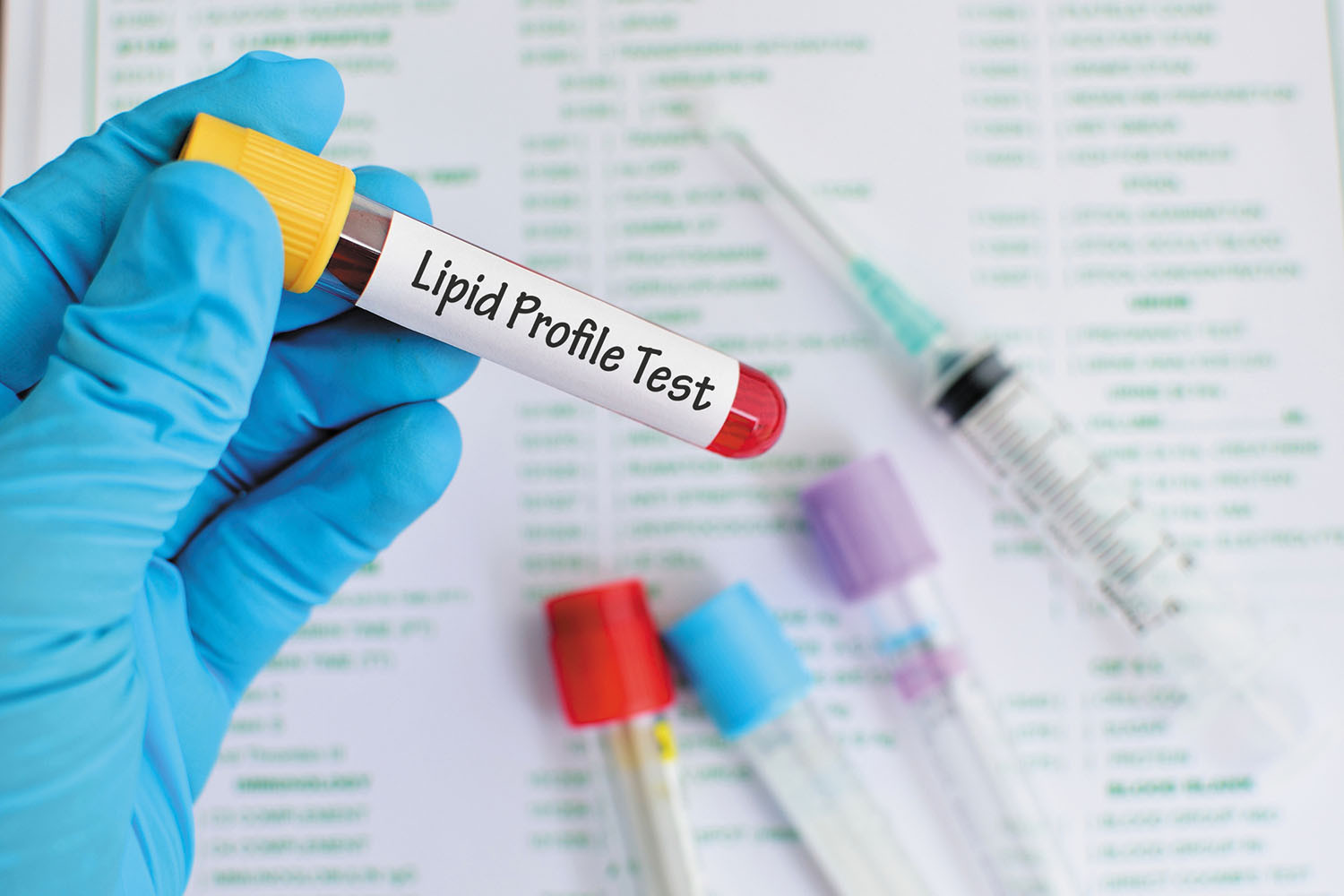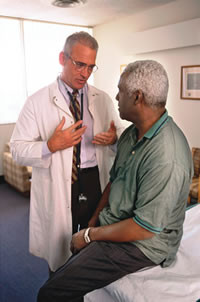
How does Ozempic work? Understanding GLP-1s for diabetes, weight loss, and beyond

Zinc: What it does for the body, and the best food sources

Respiratory health harms often follow flooding: Taking these steps can help

Tips to leverage neuroplasticity to maintain cognitive fitness as you age

Can white noise really help you sleep better?

Celiac disease: Exploring four myths

What is prostatitis and how is it treated?

What is Cushing syndrome?

Exercises to relieve joint pain

Think your child has ADHD? What your pediatrician can do
Heart Health Archive
Articles
Ultra-processed foods linked to poor heart health
Research we're watching
Eating ultra-processed foods — such as packaged snacks, sugary cereals and drinks, chicken nuggets, and instant soup — may leave people more prone to heart disease and an early death, two new studies suggest. Both were published May 29 in The BMJ.
One study followed more than 105,000 adults for just over five years. Researchers found that for every 10% increase in the amount of ultra-processed foods people ate, their risk of a heart attack, stroke, or other serious cardiovascular event was 12% higher. The other study tracked nearly 20,000 people over an average of 10 years. People who ate more than four servings of ultra-processed foods daily had a 62% higher risk of dying from all causes compared with those who ate only two servings per day.
Farewell to fasting before a cholesterol test?
Research we're watching
Don't want to skip breakfast before your cholesterol test? You probably don't need to. A study published online May 28 by JAMA Internal Medicine adds to the evidence that fasting isn't necessary before this common blood test, often referred to as a lipid profile.
For the study, nearly 8,300 people at risk for heart disease had fasting and nonfasting lipid profile tests done at least four weeks apart. (Fasting means they had nothing to eat or drink except water for at least eight hours before the test.) The differences in their total, LDL, and HDL cholesterol values were negligible. Triglyceride levels were modestly higher in the nonfasting samples.
Urinary tract infections: A possible trigger for stroke
Research we're watching
Infections — especially those in the urinary tract, known as UTIs — may raise the risk of a stroke, a new study finds.
Researchers examined the electronic medical records of more than 191,000 stroke patients to see if they'd been hospitalized or gone to an emergency room for an infection shortly before the stroke. They tracked infections of the abdomen, blood, respiratory tract, skin, or urinary tract.
Heart disease may accelerate cognitive decline
Research we're watching
If you have coronary artery disease, you may be at higher risk for cognitive problems, according to a study published in the June issue of the Journal of the American College of Cardiology. People with coronary artery disease have blockages in the arteries that lead to the heart. When blood flow to the heart is slowed or blocked, the result can be a heart attack or the chest pain known as angina.
Study authors looked to see whether this condition had any effect on thinking skills. They selected people with no history of heart disease and followed them for 12 years, administering three cognitive tests throughout the course of the study. Ultimately, 5.6% of people in the study experienced a heart attack or angina. Researchers found that these people were not more likely to have experienced cognitive decline before their heart episode or immediately after, but were at much higher risk for cognitive decline in the years that followed. It's not clear why this occurred, but the study authors say that doctors should be aware of this risk and should monitor people with coronary artery disease carefully.
High blood pressure at the doctor's office but not at home?
About one in five people has white-coat hypertension, which refers to blood pressure that is high in the doctor's office but normal at home. Doctors don't typically treat this condition with medication, but white-coat hypertension may increase the risk of heart attacks, stroke, and death from heart disease if left untreated. People who take blood pressure medications and still experience a blood pressure rise at the doctor's office (what's known as white-coat effect) do not appear to face higher risk of heart disease. Lifestyle changes that can help all people with high blood pressure include losing weight, exercising regularly, limiting salt, and quitting smoking.
Bypass or angioplasty with stenting: How do you choose?
Photo: Thinkstock |
It's your doctor's call, but it's good to understand, and to weigh, your options.
Your heart doesn't just pump blood—it needs blood to survive. So, when blocked coronary arteries threaten the heart's blood supply, something must be done.
What is a bubble study?
Ask the doctor
Q. My cardiologist mentioned that he was going to do a "bubble study" during my echocardiogram. What is that?
A. During an echocardiogram, a technician uses a probe that emits high-frequency sound waves (ultrasound) that "echo" off the structures of your heart. The waves, which are translated into video images visible on a monitor, can reveal in-formation about your heart's structure and function. A bubble study gives added information, as it can identify potential blood flow issues inside your heart.
When it comes to cholesterol levels, white meat may be no better than red meat — and plant-based protein beats both
Plenty of people avoid red meat or eat only small amounts of it. But relying on white meat for protein may not be such a good nutrition choice either. According to the results of a small study, those who ate red meat and white meat had similarly higher cholesterol levels.
High cholesterol may be risky for your eyes
Research we're watching
Got a high cholesterol reading? You may have a higher risk for a dangerous eye condition called glaucoma, according to a recent study published online May 2 by JAMA Ophthalmology. The condition, characterized by pressure in the eye that can damage the optic nerve, can lead to vision loss.
The study looked at 866 cases of primary open-angle glaucoma, the most common type of glaucoma, among more than 136,000 study participants who were followed for 15 or more years. Participants provided researchers with updates on statin use and cholesterol levels every other year throughout the study period. After analyzing the information, study authors found that for every 20-point increase in total cholesterol there was a 7% increase in glaucoma risk. But the use of cholesterol-lowering statin drugs seemed to reduce risk. People who used statins for five years or longer had a 21% lower risk of developing glaucoma.
Salt sensitivity: Sorting out the science
Eating too much salt usually boosts blood pressure, but not in everyone. Understanding the genetic basis of these differences may improve treatment of high blood pressure.
Do you know someone who eats lots of salty food — pizza, pickles, pretzels, and the like — but has naturally low blood pressure? That person may be salt-resistant, which means his or her blood pressure doesn't rise very much in response to a diet high in salt (sodium chloride). In contrast, other people are salt-sensitive, which means their blood pressure rises by 5 points or more if they switch from a low-sodium to a high-sodium diet.
Unfortunately, there isn't an easy test to determine who is salt-sensitive, says endocrinologist Dr. Gordon Williams, professor of medicine at Harvard Medical School. "Still, we know that Americans eat far more salt than they actually need, so it makes sense to advise everyone cut back on salt," he says.

How does Ozempic work? Understanding GLP-1s for diabetes, weight loss, and beyond

Zinc: What it does for the body, and the best food sources

Respiratory health harms often follow flooding: Taking these steps can help

Tips to leverage neuroplasticity to maintain cognitive fitness as you age

Can white noise really help you sleep better?

Celiac disease: Exploring four myths

What is prostatitis and how is it treated?

What is Cushing syndrome?

Exercises to relieve joint pain

Think your child has ADHD? What your pediatrician can do
Free Healthbeat Signup
Get the latest in health news delivered to your inbox!
Sign Up











